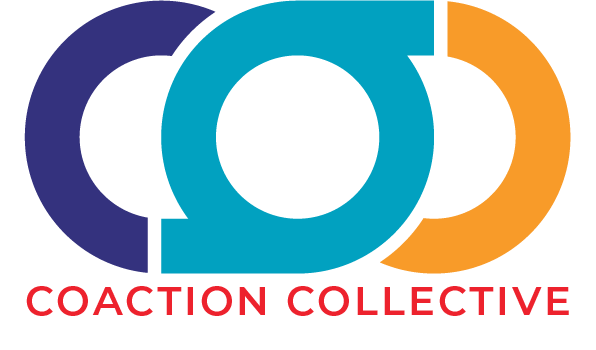Parenting, Stress, and Society: Why Family Engagement Matters More Than Ever
The Surgeon General's recent advisory on Parent Health & Well-Being is a stark reminder of the heavy load that parents, particularly those of us in marginalized communities, carry on our shoulders daily. As a Black father raising two children—one a newly minted college freshman and the other a seventh-grade daughter—this advisory hits home in profound ways. The data is clear: parents are struggling, and the stakes couldn't be higher.
According to the 2023 data highlighted in the advisory, a staggering 33% of parents report high levels of stress compared to 20% of other adults. More troubling, nearly half of the parents surveyed feel their stress is completely overwhelming on most days. These statistics aren't just numbers—they reflect the lived experiences of so many of us who are striving to provide for our families, ensure our children’s safety and well-being, and navigate the unique pressures of raising Black children in a society that often marginalizes their experiences.
For me, this journey is personal and deeply intertwined with my work at Coaction Collective. As I dropped my son off at college this year, I felt the pride that every parent feels in that moment, but also intense anxiety about the world he's stepping into as a young Black man. The transition from high school to college is a critical one, and for a young Black man entering a predominantly white institution, the challenges are multifaceted. We know that stress doesn't dissipate once our children leave the nest—it often amplifies as we worry about their adjustment, safety, and success in environments that might not always affirm their identity.
Me with my son, celebrating his entrance into college.
At the same time, I'm raising a 12-year-old daughter who is navigating the complexities of adolescence, social media, and the societal pressures placed on young Black girls. The challenges are real, and as the advisory notes, the mental health conditions experienced by parents can manifest differently based on family structure, gender, and cultural context. In our case, the intersection of race, gender, and the everyday stresses of parenting compounds the mental and emotional toll.
At Coaction Collective, we’ve always emphasized the importance of building strong, supportive networks that bridge families, schools, and communities. The Surgeon General’s call to action is a validation of the work we’ve been doing—advocating for policy changes, creating school/community programs, and fostering environments where parents, particularly those from marginalized communities, can thrive. We recognize that the work of parenting is as valuable as any paid job, and the well-being of parents is integral to the well-being of society.
Yet, the advisory also underscores the need for us to do more. It’s not enough to recognize the stress and challenges parents face—we must actively work to alleviate them. This means pushing for policies that address economic instability, providing mental health resources that are culturally responsive, and creating community spaces where parents can connect, share, and support one another.
In my research on Black fatherhood, I’ve seen firsthand the power of community and connection in mitigating the stressors of parenting. Black fathers, often overlooked in discussions of parenting, play a critical role in the family-school partnership. We bring unique strengths and perspectives that are invaluable in the fight for our children's futures. We also face unique challenges that require targeted support and resources.
As a father, I’m reminded daily of the weight of this responsibility. But I’m also reminded of the strength that comes from being part of a community—whether it’s the Coaction Collective community or the broader network of Black parents who are navigating similar challenges. We are not alone in this journey, and together, we can create the changes necessary to support all parents and caregivers.
The Surgeon General’s advisory is a call to action, not just for policymakers, but for all of us who are invested in the future of our children and communities. Let’s heed this call by continuing to build the networks, resources, and support that parents need not just to survive but thrive. Our children—and our society—depend on it.
To learn more about co-creating supportive environments for families in schools and communities,please reach out to Coaction Collective. We would love to learn more about the unique successes and challenges in your community.
Additional Resources for Supporting Parent Well-Being and Family Engagement
Surgeon General's Advisory on Parent Health & Well-Being: Access the official advisory document for insights into the mental and emotional health challenges faced by parents, with a focus on marginalized communities.
Parenting Stress Data: Explore the 2023 data source or a reliable report that includes the statistics on parenting stress mentioned in this article.
Resources on Black Fatherhood:
National Fatherhood Initiative: Learn more about the unique role of Black fathers in family-school partnerships and their impact on child development.
Amplifying the Voices of Black Fathers: Insights from a Photovoice Study on Family-School Partnerships: Read about the unique challenges and contributions of Black fathers in family-school partnerships, based on a photovoice study. Written by our own Mike Andrews.
Mental Health Resources for Parents:
Mental Health America: Find culturally responsive mental health resources tailored for parents.
National Alliance on Mental Illness (NAMI): Access support and resources for parents navigating mental health challenges.
Advocacy and Policy Resources:
Center for Law and Social Policy (CLASP): Discover organizations advocating for policies that support parents' economic stability and well-being.
National Association for Family, School, and Community Engagement (NAFSCE): Engage with NAFSCE’s work to advance family, school, and community engagement policies and practices.
National PTA: Engage with the National Parent Teacher Association's initiatives that support family engagement and education.



